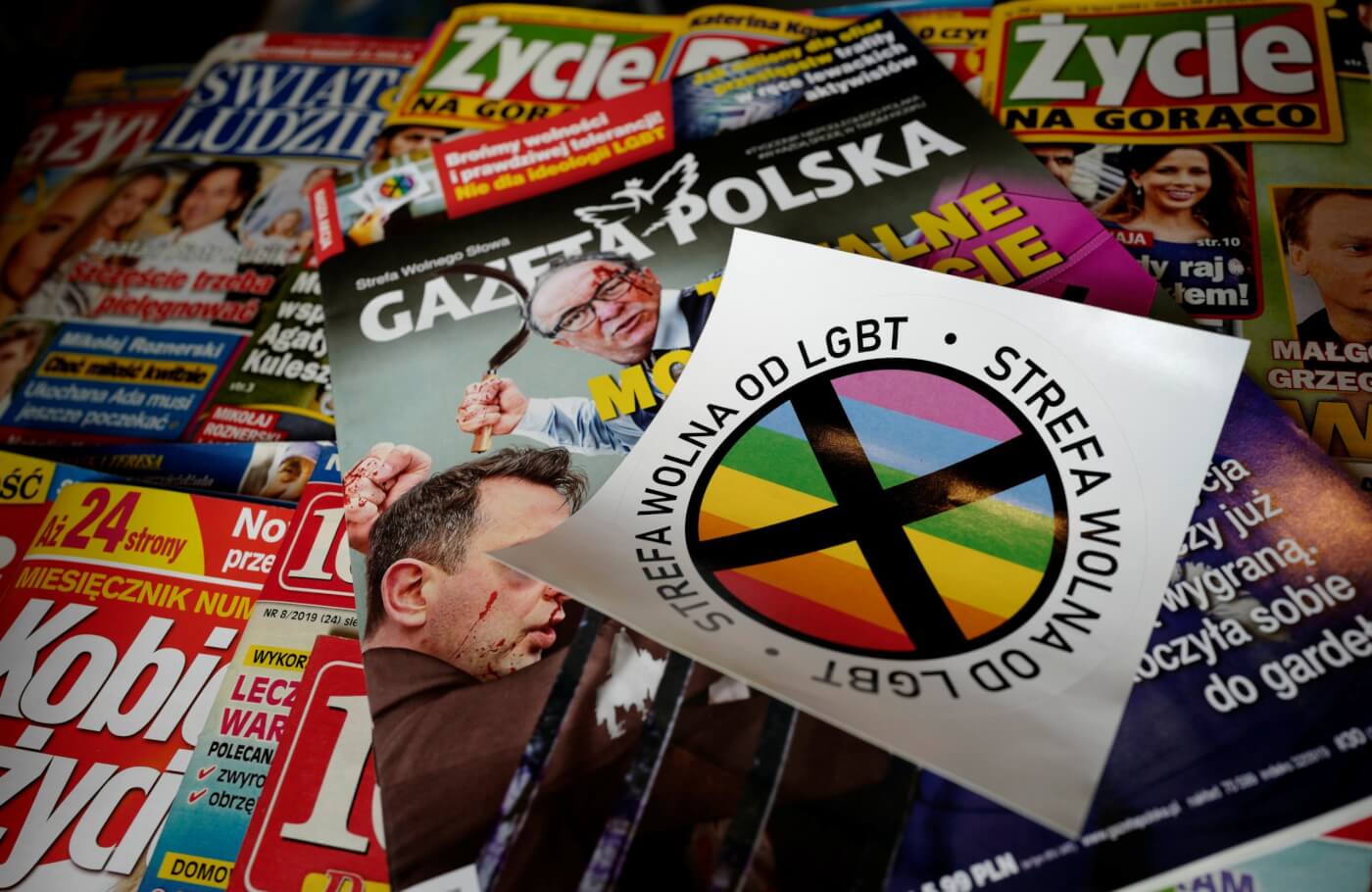The European Union has decided to deny funding under a twinning programme to six Polish towns that have declared themselves “L.G.B.T.-free zones”. The decision is a rare example of the EU imposing financial sanctions on a member state for issues relating to equal treatment of its citizens.
The announcement was confirmed by the EU’s Equality Commissioner, Helena Dalli, who stressed “EU values and fundamental rights must be respected by Member States and state authorities.”
EU values and fundamental rights must be respected by Member States and state authorities.
This is why 6 town twinning applications invilving Polish authorities that adopted ‘LGBTI free zones’ or ‘family rights’ resolutions were rejected.#LGBTI #UnionOfEquality
— Helena Dalli (@helenadalli) July 28, 2020
The money withheld was modest – between €5,000 to €25,000. However, the exclusion of the towns from a twinning programme, which aims to connect localities across Europe “to guarantee peaceful relations” and “reinforce mutual understanding and friendship” is intended to have a deeper significance than just the loss of funding.
Speaking on the decision, a Commission Spokesman said:
“The call for proposals for the twinning programme stipulates that it must be accessible to all European citizens without any form of discrimination on the basis of gender, ethnic origin, religion or belief, disability, age or sexual orientation,”
Applications for 127 cities and projects – including eight Polish beneficiaries – were selected by the EU for a total grant value of more than €2.3 million.
LGBT-Free Zones in Poland
In March 2020, the International Observatory of Human Rights (IOHR) reported that one-third of Polish towns had declared themselves LGBT-free since 2019.
Despite same-sex sexual activity being made legal for both men and women as early as 1932, the majority of Poland still holds very conservative viewpoints. A sticking point has been Article 18 of the Polish constitutiion which stipulates that marriage is the “union of a man and a woman,”, which many chose to interpret as a ban on same-sex marrriage.
In February 2019, Warsaw mayor Rafał Trzaskowski signed a declaration to support LGBTI people. In response, several towns reacted by declaring they were now ‘LGBT-free zones’.
Cecylia Jakubczak of advocacy group Campaign Against Homophobia (KPH) explains that:
“Although these anti-LGBTI resolutions adopted by nearly 100 municipalities in Poland have no legal value, they have great symbolic value. It’s a signal sent to LGBTI people to let them know that local authorities see no place for them in their own cities or towns,”
In July 2020, a so-called ‘LGBT-free’ zone in Poland was been declared invalid after Polish judges ruled it violated the constitutional ban on discrimination and turned a “blind eye to reality”.
Despite this ruling, the emergence of LGBT-free zones has stoked homophobic sentiments accross the country, with attacks on pride event accross the country becomming commonplace.
As Stefania Sarrubba reported for IOHR in March 2020:
“A group of extremists disrupted the first Equality March in Białystok in July 2019. Attackers burned flags, threw smoke bombs, bottles and rotten eggs at the 1,000 Pridegoers, and injured and beat up several people. Moreover, police blocked a bombing attempt during Lublin Pride March in September 2019.”
A 2020 survery by ILGA, an international gay rights organization, found Poland is now the most homophobic country in the European Union.
The view across Europe
The decision follows disquiet in other member states around the treatment of Poland’s LGBT community. In February 2020, St.-Jean-de-Braye in the north-central French region of Loiret, announced it was suspending all cooperation with towns they were twinned with in Poland that declared themselves “L.G.B.T. free.”.
Speaking at the time, the local council said:
“France is committed to combating human rights violations based on sexual orientation…We reaffirm that human rights must apply without discrimination to every human being, regardless of sexual orientation or gender identity.”
Similarly, in July 2020 a city in the Netherlands severed ties with its sister city in Poland after the latter declared itself an “LGBT-free zone.”
Making a statement on the EU’s decision, European Commission President Ursula von der Leyen said:
“Our treaties in Europe ensure that every person in Europe is free to be who they are, live where they like, love who they want and aim as high as they want. I will continue to push for a #UnionOfEquality.”
However, the decision has added significance as it comes just days after the leaders of the 27-nation European Union bowed to pressure from Poland and Hungary and relaxed a framework devised to tie long-term budget spending by the bloc to issues related to rule of law.
Both countries, in different ways, have been infringing on the protections and liberties needed to ensure a healthy democracy, including a free press and an independent judiciary.
While both countries have been threatened with having their voting rights in the bloc suspended — they have faced little in the way of concrete punishments up until now.
The reaction in Poland
Jaroslaw Kaczynski, the leader of the governing party, has previously insisted that Poles will not be forced “to stand under the rainbow flag and that homosexuality represents a “threat to Polish identity, to our nation, to its existence and thus to the Polish state.”
Poland’s Minister of Justice, Zbigniew Ziobro, has condemned the EU’s decision, saying his country will defend the rule of law, saying:
“We will not allow discrimination of Polish citizens and local governments by the European Union…The Union must respect the equality of all its citizens, who have the right to form their opinions and beliefs freely.”

